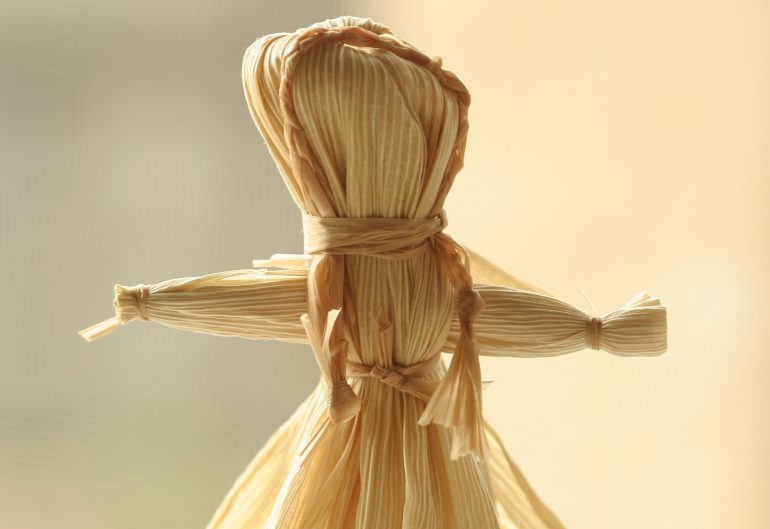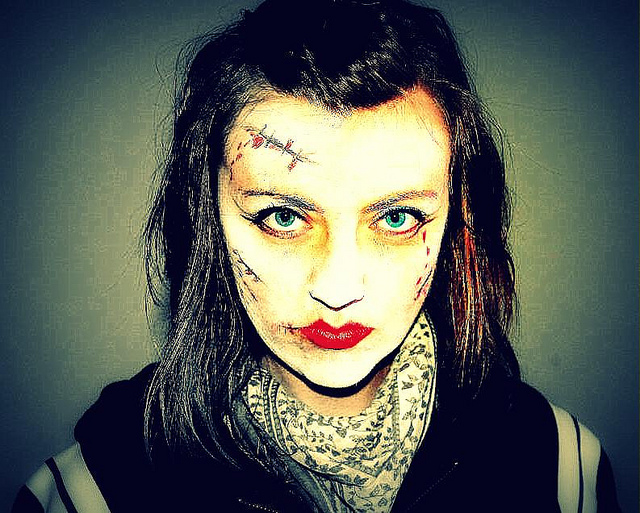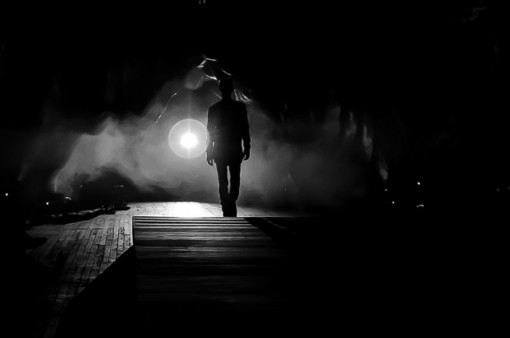Sara Heise Graybeal
Years ago, before the babies, before setting off cross-country in an RV, before camping on the banks of cold rivers and coaxing burnt hot dog bits across the babies’ tongues—before all that, a hot mouth of secrets opened and he told you a deluge of terrible things.
He had escaped from a gang in another country. He had come to work on a farm in the rolling hills just east of the Smokies where you lived. He first spoke to you on the day you plunged your hands into a trough of potatoes he was selling at the market: “They’re soft. Try the stall by the entrance instead.”
You looked up, thanked him.
He did not return your smile. “They began to rot in the field. I’m still learning.”
“Most people wouldn’t tell.”
“I try to be honest. I don’t always succeed, but I try.”
He was emerging from a lightless place then. His eyes browned and warmed when you asked if he’d like a coffee, fetched it from the kiosk and brought it back to him. Later, over a second cup in town, he told you everyone he’d ever loved was gone. Some were imprisoned. Most were dead. The fact that he was neither dead nor imprisoned represented his greatest loneliness.
He began to bring you potatoes, pork, lettuce and kohlrabi. He took you on long drives through the Smokies, pointing out the farm where he worked, the double-wide where he lived, the gas station where he bought coffee each morning. He loved your cabin, bats cruising low at dusk. He baked you coconut bread, pound cake. Together you made corn husk dolls; he smoothed the husks, you wound the thread.
After some months you began to speak, lightly, of a life together.
Then, beneath your porch light, blowing marijuana smoke into the sycamores, he told you he had killed people. He and his uncle, they had worked—killed—together. “A lot of people.”
He had said the word gang, but you had not expected him to say this. You had thought that by not hearing it, it could almost have never happened.
“How many?” you asked.
“Seven.” His eyes pleaded. “If I hadn’t killed them, they would have killed me.”
That night, instead of taking him into your bed, you tucked him in the twin you reserved for company. His hands shook. You kissed his forehead, smoothed his hair like a child.
The next day he was restless, as though your cabin had been tainted by his confession. He stood at the sloped edge of your yard, hurling stones down among the trees. “It’s nothing,” he said when you asked. “Nothing.”
He had killed more than seven people, he told you a few weeks later. Night on the porch, palms rounded at his mouth, joint sparking. It was more like nine. Ten. His uncle made him promise not to kill anymore. “He said I was destroying my soul. We both were. He said that was it, no more. Then they killed him.”
“Oh, my God.”
“Sixteen bullets in his back and head.”
“And did you—?”
“No.”
“Promise?”
“Yes. I wanted to, though.”
He thrashed beside you in bed that night, a doll bent to wind. Hours before dawn, you stumbled into the guest bedroom, stretched on top of the covers and shut your eyes.
When the sun came up, you drove him west to the caves where your parents had taken you as a child. Before the divorce, before the three of you twirled apart like sycamore seeds—your mother to the Adirondacks, your father to the Rockies, and you back here, the last place you remembered life as one single steady thing.
Inside the cool lip of mountain, he found an organ on a rock platform and serenaded you, water plinking from stalactites. He scrambled down and held your arms and, briefly, you danced. “I wish I always felt this way,” he told you, climbing back into the light. “Safe from the canyon.”
“What canyon?”
“My thoughts. Me.”
“You?”
“The part of me that wants to go home, that doesn’t feel alive anymore.”
You hadn’t known he thought of leaving. You wanted an explanation, but he did not come see you for weeks after that. Your calls roused him from thick sleep. His voice was angry, distant. Cold slipped in, fraying the skirt of the corn husk doll, turning everything dry and quick to snap.
Then he appeared with a smile, holding a half-whittled boat. You sat on the porch together, slapping mosquitoes. Lowering his knife to the wood, he said his uncle liked nights like these, gentle ones.
It was your fault. You were afraid of his low mood, so you sought it out. “Sometimes,” you said, “I hate your uncle, for what he did to you.”
He stared into the night. “Never,” he said, “never, ever, ever say that.”
A cricket strained beneath the porch.
You whispered, “Do you like nights like these, too?”
He resumed his carving, metal humming against the wood. “I’m beginning to like them. But the old addictions have not disappeared.”
“The addiction to your old life?”
He set his boat carefully on the wooden slab of porch. Moths shimmered. “The addiction,” he said, “to—”
He did not finish the sentence. His hand shook when he struck a match. He took a bottle of whiskey from his pocket. He started crying. He had killed the men who killed his uncle, he told you. He had not killed ten people; he had killed eleven, twelve, thirteen.
“Oh,” you said, “oh.”
He took a swallow of whiskey. He said that years earlier, his uncle and his uncle’s friends put a man’s head in a bag. He was nine. They told him to hurl the bag against a tree until the skull cracked. “There were five of them. They were smoking. It was a ceiba tree.”
“Wait,” you said.
He closed his eyes. “They gave me the bag. They asked, do you want to be a man?”
You stood up, went inside the screen door. “Please,” you said, “no more.”
He went to sleep in the twin bed of his own accord.
On your bedside table, the corn husk doll had split, a certain thing becoming less so. You would end it in the morning, you decided. You would send him down the mountain road and away.
But you had barely fallen asleep when your bed swayed, the edges turning to sloped walls. Smoke, the pop of guns, blood slipping from a burlap sack. Your muscles braced against the precipice. You stood up, lay down. The room tilted. You could not sleep for fear of falling.
Half-crazed, you stumbled down the hall into the twin, folded yourself in his sweat-slick arms. Just before dawn the heat broke. Rain clattered on the tin roof and wind swept the porch. In the cold morning air, the mosquitoes and moths were gone. The sycamore smoke was gone. His palm was soft on your cheek. “I will never,” he said, “scare you again.”
You tried to recall the omen, the corn husk doll split in two. Instead you thought of the canyon that had come for you in his absence. The twin bed was thin, the edge close, but his arms held you back from its cloying mouth.
Together you cooked breakfast, swept the floor.
Years later, on warm nights by the river, he scrubs the dishes in the dark. The frying pan, the crockpot. The kid leftovers—soggy buns, wilted lettuce tossed away. You’ve devoted your lives to seeking refuge together, and sometimes you find it in orange sun, loose teeth, shiny fish twisting on the line. Other nights, he hears the men at the bottom of the canyon. They still ride ATVs like in the old days, fiery whiplash, debris flying. He thinks how it would be to join them: release his grip, skid down through dust. You dread and yearn for it, this release, this final settling of the question that haunts him—where he was meant to end up, dead or imprisoned, in which of these two ways he was meant to be a man.
Instead he strikes a match, inhales. Lifts a bottle to his mouth, swirls the night around and spits it across dark water. A single sound where it falls.
Sara Heise Graybeal is an English lecturer at the University of North Carolina at Greensboro, where she earned her MFA. Her work has appeared in Hobart, The Rumpus, Beloit Fiction Journal, Moon City Review, and elsewhere. She can also be found at saragraybeal.com, on Twitter at @saragraybeal, and on her forthcoming podcast, “Why’s My Life So White?” in which she interrogates the racial segregation of white liberals in America.




